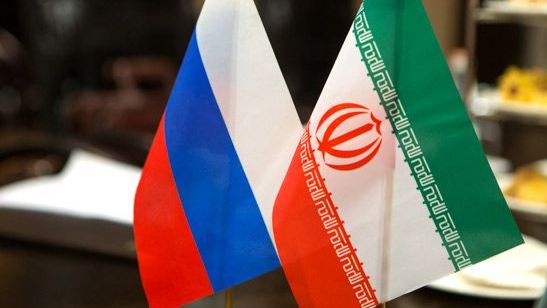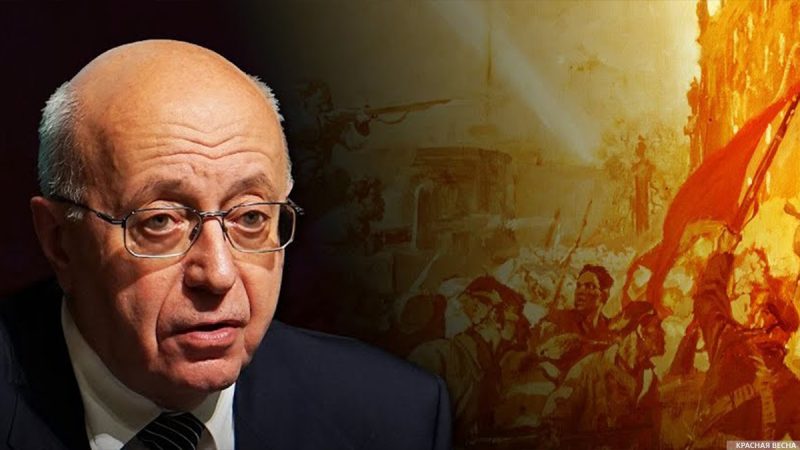07.02.2022, Moscow.
The strengthening of relations between Moscow and Beijing is having a tangible effect on relations between Moscow and Tehran, Rossa Primavera News Agency editorial published on February 7 reads.
On February 4, Russia and China signed a 25-year contract to sell gas, thereby strengthening ties between Moscow and Beijing. Russian President Vladimir Putin attended the opening of the Olympics in Beijing, thus supporting the Chinese leader as a counterweight to the boycott of the Olympics by the United States and its allies.
On January 15, Chinese Foreign Minister Wang Yi and Iranian Foreign Minister Hossein Amir-Abdollahian met in the Chinese city of Wuxi and announced the beginning of a 25-year cooperation agreement. And during his visit to Moscow on January 19-20, Iranian President Ebrahim Raisi also gave Vladimir Putin a draft 20-year agreement on cooperation between Russia and Iran.
Such contacts and the conclusion of long-term landmark documents indicate the possibility of forming an “alliance of three” countries being under US sanctions. In turn, strengthening relations between Moscow and Beijing could have a positive impact on relations between Moscow and Tehran.
Nikolai Kozhanov, associate professor at the Gulf Studies Center of Qatar University and senior fellow at the Institute of World Economy and International Relations of the Russian Academy of Sciences, notes in his article for the Russian edition of Forbes that the background conditions for ties between the countries are better than they were before. “There is a growing understanding in Tehran that cooperation with Moscow and Beijing as key partners is an unavoidable long-term reality in which it has to live,” Kozhanov explains.
However, the expert also notes that the projects being discussed between Russia and Iran (barter deals with payment for oil, export of Russian gas through Iran, requests to buy weapons, interest in the North-South transport corridor, credit line) are not new and have been familiar since the late 2000s.
“None of the aforementioned initiatives has worked so far: in some cases, sanctions have prevented it, in other cases the parties’ lack of money and a shortlist of what their economies can offer each other, and somewhere mutual prejudice, marred by the experience of the past, stood in the way,” he explains.
At the same time, he notes that there are reasons for strengthening ties between Moscow and Tehran. Thus, in his view, the Russian-US contradictions have reached such a level that it no longer makes sense for Russia to take into account the dissatisfaction of the US with the cooperation between Moscow and Tehran.
“The increasing importance of ties with China for both players allows for the implementation of multilateral cooperation formats that make a number of economic projects more feasible than before,” he adds.
Iranist Polina Vasilenko writes that there is no consensus in Iran on a strategy for relations with Russia. For example, there was a wave of indignation in Iran over the “secrecy” of the draft agreement passed between Moscow and Tehran. A similar situation arose “during the hot phase of discussions on the 25-year strategic agreement with China, signed in March 2021,” she notes.
“Russia could hardly afford to become an investor in Iran, given its limited economic opportunities and the existence of competing industries, but this does not remove the suspicion that Raisi’s administration may make concessions to Russian partners, which, in turn, could be a blow to Iran’s national interests,” the expert explains.
Former Iranian President Mahmoud Ahmadinejad also spoke negatively about the need for rapprochement between Russia and Iran, stressing that “any contract that is hidden from the eyes of the nation harms the country and the people,” and that secret deals with Russia and China are worse than the Joint Comprehensive Plan of Action.
There have already been broken arrangements between Iran and Russia when the “third party factor has often led to doubts about the sincerity of the partner (it is appropriate to recall the incident in 2010 when Russia refused to deliver S-300 air defense systems to Iran against the background of the rapprochement with the US)”, Vasilenko writes.
Therefore, Raisi’s speech in the State Duma may even be considered as a cry from the heart on this issue. “In order to ensure our bilateral interests, it is necessary to prevent the penetration of third elements into internal affairs,” said the Iranian president. However, in such a “cry from the heart,” there is a request to rectify the situation.
Source: Rossa Primavera News Agency




